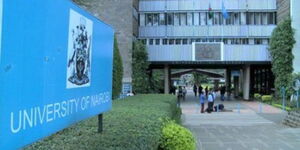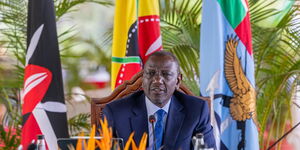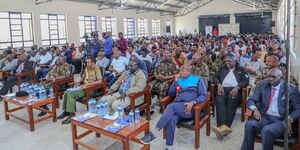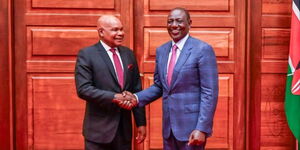The Taskforce on Mental Health in Kenya comprised of a multi-sectoral team from the Ministry of Health proposed the formation of the Commission for Mental Health and Happiness.
In their recommendations, the taskforce stated that mental illness should be declared a National Emergency of epidemic proportions and urged the government to prioritize it as a priority public health and socio-economic agenda.
According to the taskforce, the Commission for Mental Health and Happiness will be mandated with advising, coordinating and continuously monitoring the status of mental health in Kenya. Further, the commission would report on the annual National Happiness Index.
The Happiness Commission would help the government in achieving people’s life satisfaction, happiness, reducing misery and promoting well-being for all.
It would borrow some of its mandate from the United Nations recommendations and evaluate and measure the extent of happiness of the citizens. The commission was to copy a model by the Kingdom of Bhutan.
The commission consists of a chairperson who shall be a mental health expert with at least 15 years of distinguished service in the field. A person living with mental illness or a caregiver of a person living with mental illness. Seven other persons with expertise in mental health and happiness.
Functions
The commission shall prepare the Annual National Mental Health and Happiness Report that shall be presented to Parliament by the President. It will also develop guidelines on the delivery of services that enhance mental health and happiness.
The commission will further develop tools for continuous surveillance of the state of mental health and happiness and ensure the integration of services that enhance mental health and happiness in all state departments and activities.
On top of this, the commission will be tasked with continuous monitoring the adherence to the constitutional and legal provisions on mental health and liaising, where necessary, with other persons or agencies in order to fulfil its mandate.
The taskforce stated it had realized that the Kenya Board of Mental Health was not constituted and there was a gap in identifying the mental health problems that Kenyans were facing and offering a solution to this gap in leadership.
Funding Mental Health
In their recommendations, the taskforce advised the government to give mental health the dignity that it deserves – pointing at the need to finance mental health services in a way that is commensurate with the burden it portends.
Further, the government was urged to establish County Mental Health Councils with mental health coordinators, and leadership structures up to the community through sub-county focal persons and ward mental health committees to coordinate the implementation of mental health programmes at the county level.
Another recommendation was the formation of the Directorate of Mental Health and Substance Use at the national level that will lead in policy formulation of policies on mental health and substance use prevention, treatment and rehabilitation.
The taskforce told Health Cabinet Secretary, Mutahi Kagwe, that many Kenyans have no access to mental healthcare despite the heavy burden in existence. It also revealed that the mental health services infrastructures are in dehumanizing conditions across different parts of the country.
It was also revealed that the Kenya Medical Supply Agency (KEMSA) has inadequate stocks and inconsistent supply of emergency and other variety of quality supplies to mental health facilities in Kenya.
The taskforce admitted that the commission for happiness was inspired by the Kingdom of Bhutan which is known the world over for taking a more holistic approach that is guided by ancient wisdom.
Happiness Ministries
Bhutan has the Gross National Happiness model which is a “multi-dimensional development approach seeking to achieve a harmonious balance between material well-being and the spiritual, emotional and cultural needs of society.”
The concept of Gross National Happiness was first developed in the 1970s by the country's King Jigme Singye Wangchuck. He believed that happiness was a key indicator of progressive development in the country. After Bhutan became a democratic country in 2008, GNH values were officially embedded into the Constitution.
The United Arabs Emirates (UAE) also has a Ministry of Happiness. The Middle East country takes the mental wellness of their citizens seriously they launched the National Programme for Happiness and Wellbeing.
The programme covers inclusion of happiness in the policies, programmes and services of all government bodies and at work,
promotion of wellbeing and happiness as a lifestyle in the community and development of benchmarks and tools to measure happiness.
To ensure that the programme was taken seriously, Dubai went ahead and appointed CEOs for happiness and wellbeing at all government bodies and also formed councils for happiness and wellbeing at federal entities.
Forming a Commission for Happiness in Kenyan and funding was hailed as a step in the right direction by experts who raised concern over the mental health crisis in the country. In Kenya, it is estimated that one in every 10 people suffer from a common mental disorder.
The number increases to one in every four people among patients attending routine outpatient services. Depression and anxiety disorders are the leading mental illnesses diagnosed in Kenya, followed by substance use disorders.












